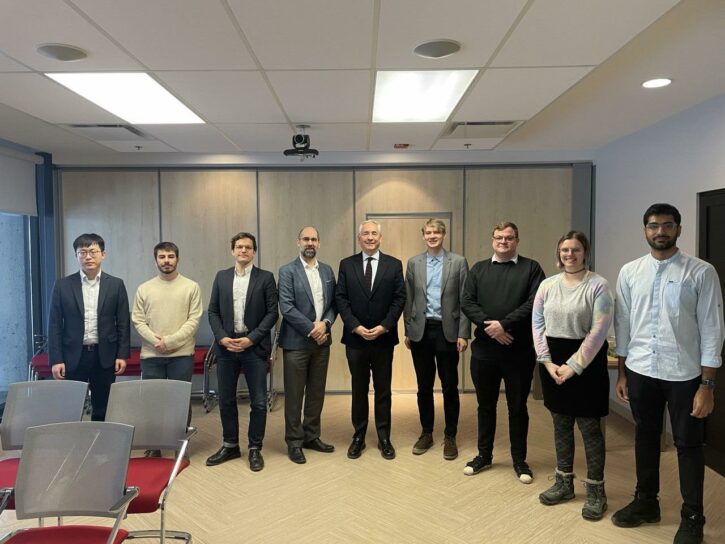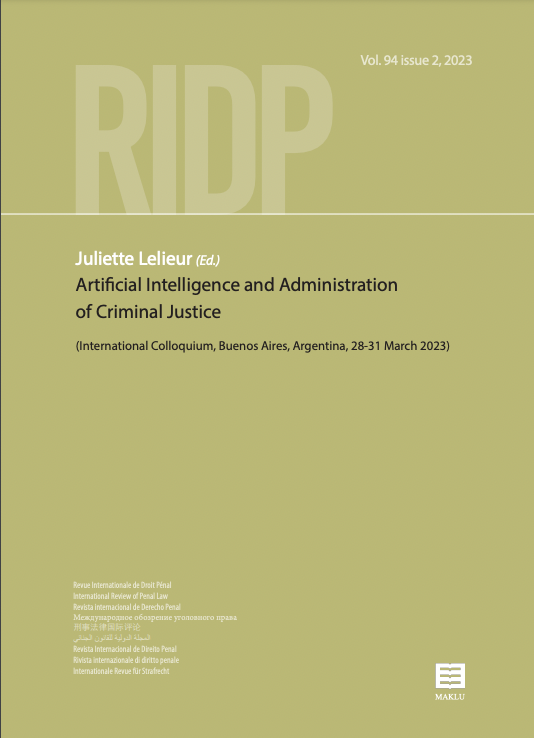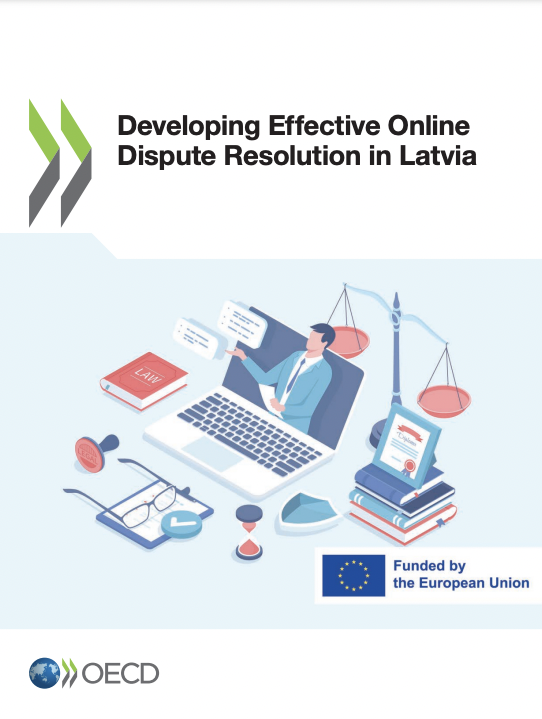À la une | Page 3
À la une Events
Upcoming Conference: 'The Code of Capital' by Professor Katharina Pistor (March 14, 2024)
he Lexum Chair and the Public Centre de recherche en droit public are pleased to invite you to the conference "The Code of Capital" by Prof. Katharina Pistor. Click here to register Practical Information When : March 14, 2024, 4:30pm Format : In Person Where : Room A-3421 Maximilien-Caron Building 3101 de […] Read more
À la une Events
Upcoming Conference: Understanding Large Language Models by Dr. Mark Daley (March 18, 2024)
The Cyberjustice Laboratory is pleased to invite you to the online conference "Understanding Large Language Models" by Dr. Mark Daley. Cliquer ici pour vous inscrire Practical Information When : March 18th 2024, 11h30 Format : On Zoom Speaker's Biography Mark is the Chief AI Officer at Western University and a full professor in the Department […] Read more
À la une
Conférence à venir: La gouvernance d’internet de Pre Michèle Rioux (27 mars 2024)
This content is not available in the selected language. La Chaire Lexum et le Laboratoire de cyberjustice ont le plaisir de vous inviter à la conférence “La gouvernance d’internet“ de Pre Michèle Rioux. Cliquer ici pour vous inscrire Informations pratiques Quand : 27 mars 2024, 16h30 Format : Présentiel et distanciel Où […] Read more
À la une
Appel à candidatures – Bourses doctorales Droit et IA & stage postdoctoral en droit et technologie
This content is not available in the selected language. Le Laboratoire de cyberjustice et la Chaire LexUM en information juridique offre une opportunité exceptionnelle pour les étudiants de doctorat et les chercheurs postdoctoraux passionné.es par les technologies de l’information, la cyberjustice et l’intelligence artificielle. La Bourse doctorale de la Chaire LexUM en information juridique et […] Read more
À la une Events
Upcoming Conference: 'The Code of Capital' by Professor Katharina Pistor (March 14, 2024)
The Lexum Chair and the Public Centre de recherche en droit public are pleased to invite you to the conference "The Code of Capital" by Prof. Katharina Pistor. Click here to register Practical Information When : March 14, 2024, 4:30pm Format : In Person Where : Room A-3421 Maximilien-Caron Building 3101 de la Tour Road […] Read more
À la une Actualités
Meeting of the Cyberjustice Laboratory Team: Advances and Features of the LLMediator Project
The Cyberjustice Laboratory's team met this afternoon to discuss the LLMediator project, a conversational agent facilitating online mediation procedures. Several features were presented, such as detecting inflammatory messages, the ability to propose a reformulation of these messages, as well as the possibility of asking the conversational agent to summarize previous messages on the LLMediator platform. […] Read more
À la une
Call for Papers: 'Can Artificial Intelligence Contribute to Justice?' Conference
The-International-Association-of-Law-2Télécharger Read more
À la une Actualités
Upcoming conference: Symposium "Problematic Generative AI" (February 9, 2024)
The Cyberjustice Laboratory invites you to the "Problematic Generative AI" symposium. Organized in collaboration with the Center for Legal & Court Technology and the Commonwealth Cyber Initiative, this event will be held on February 9, 2024. This symposium is a follow-up to the discussion that began at the 2023 Problem AI symposium. We strongly […] Read more
À la une Actualités Dans les médias
Professor Karim Benyekhlef and Mr. Gabriel Lefebvre sign the article "Predictive Policing in Canada" in the International Review of Criminal Law
On January 9, 2024, the Revue Internationale de Droit Pénal published volume 94, number 2. This issue of RIDP, entitled "Artificial Intelligence and Administration of Criminal Justice" presents the results of collective research undertaken in 2020. Based on a lengthy questionnaire, this research addresses emerging issues concerning the use of artificial intelligence (AI), primarily machine […] Read more
À la une Actualités
The Cyberjustice Laboratory collaborates with the OECD on the report "Developing effective online dispute resolution in Latvia"
Today, the OECD published its report titled "Developing Effective Online Dispute Resolution in Latvia." The report documents the evaluation of online dispute resolution in Latvia and summarizes key policy recommendations to support its development. It draws inspiration from the OECD's previous influential work on access to justice, such as the OECD Recommendations on Access to […] Read more







